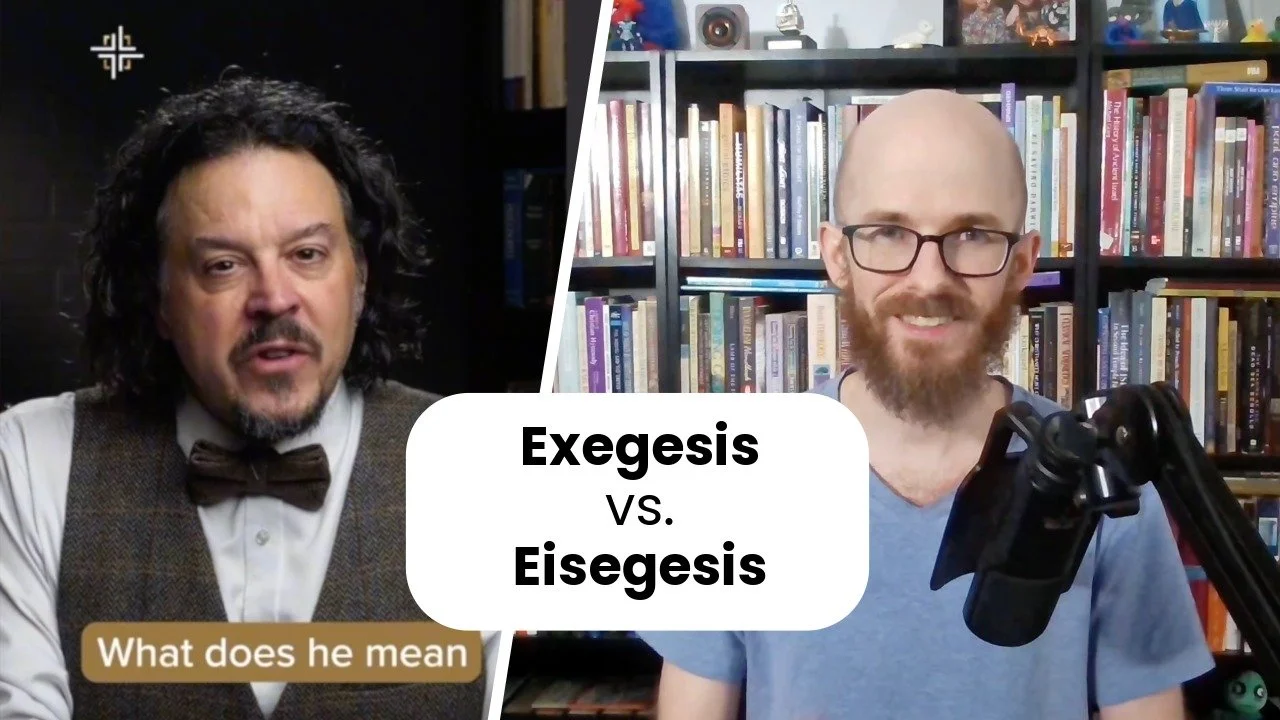Some of Your Problems Are Your Fault
In this week’s Parashah Point on the Torah Portion B’reisheet, we cover Genesis 3:12-13 where we see the first instance of shifting blame. Instead of putting the blame on others, it’s time to realize that some of our problems are our own fault, at least in how we handle them.
Transcript
Welcome to another episode of Parashah Points—short thoughts from the weekly Torah Portion.
This week’s Parashah Point comes from B’reisheet, which is Hebrew for “in the beginning,” and it goes from Genesis 1:1 to Genesis 6:8.
This parashah tells the story of God creating the universe and people (Genesis 1-2).
It also speaks of the first sin on the part of Adam and Eve—when they ate from the tree of knowledge and were exiled from God’s presence (Genesis 3).
Then we learn about one of Adam and Eve’s sons, Cain, who becomes the first murderer by killing his brother Abel (Genesis 4).
Then there’s an account of Adam’s descendants all of the way to Noah who is said to find favor in God’s eyes (Genesis 5-6:8).
There’s a lot we can talk about in this Torah Portion. Today we’re going to present a thought on taking responsibility for our actions.
There is a funny comic strip that you might have seen online. It tells a story of an Indiana Jones-esque character searching for the “scroll of truth”—a magic scroll that reveals the absolute truth of the universe. When he finally finds it, he opens it to read, “Some of your problems are your own fault.” Then the comic ends with the character angrily throwing the scroll away.
A lot of us don’t like to hear the truth that we’re at fault for our problems. As humans, we are naturally inclined to think we’re awesome or to want others to think we’re awesome. So we blame someone or something else for our problems. Our Torah Portion reveals that it’s been that way since the very beginning. After Adam and Eve disobeyed God by eating the forbidden fruit, God confronted them. Look at how they reacted:
Genesis 3:12-13
The man said, "The woman whom you gave to be with me, she gave me fruit of the tree, and I ate." Then the LORD [YHWH] God said to the woman, "What is this that you have done?" The woman said, "The serpent deceived me, and I ate."
As you can see, the oldest human reaction to sin is to try to blame-shift. When God questioned Adam about eating the forbidden fruit, instead of taking responsibility, Adam blamed Eve. When God questioned Eve, she blamed the serpent. This is where the seed was planted, and generations of mankind thereafter have sought to escape responsibility.
You see it all the time in our culture. Everything is always someone else’s fault. Everyone is a victim.
You might say, “Well, I never blame other people for my problems!” And maybe many of us know better than to blame another person. But a lot of the time, we still find a way to place the blame somewhere else, like on our situations.
“Well, I wouldn’t have done that if such-and-such didn’t happen!” But whatever happens in your life, how you handle it is ultimately your responsibility. You can’t rob a bank and then blame your actions on the fact that you lost your job the week before. Even if you feel like you were unjustly fired by a cruel and incompetent boss, and it really put your family in a bind—that excuse is not going to get you out of jail.
Even if you did nothing to cause your situation, if you respond badly in that situation, you have no one and nothing else to blame but yourself. Own it. Take responsibility.
We, as followers of the Messiah Yeshua, are called to reverse this cycle of blame-shifting. Our very relationship with Messiah begins by admitting that we are wrong. We have failed. Our bad choices have brought destruction upon our lives. Deliver us, O God!
May we maintain that spirit of humility that we had when we first received Messiah throughout our entire walk with Him.
Thank you for joining us for another Parashah Point!
About David Wilber
David is first and foremost a passionate follower of Yeshua the Messiah. He is also a writer, speaker, and teacher.
David’s heart is to minister to God’s people by helping them rediscover the validity and blessing of God’s Torah and help prepare them to give an answer to anyone who asks about the hope within them (1 Peter 3:15)…
































